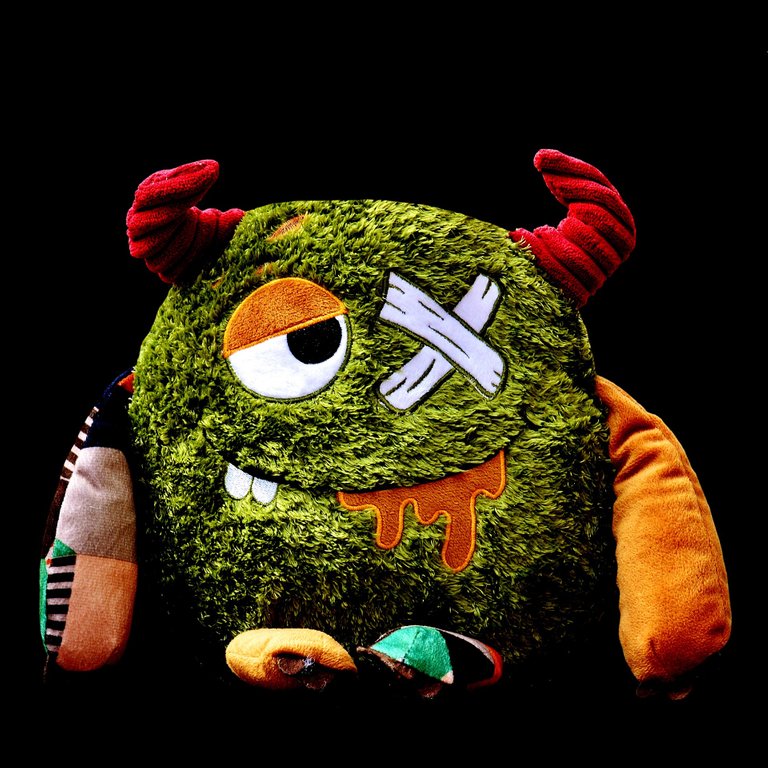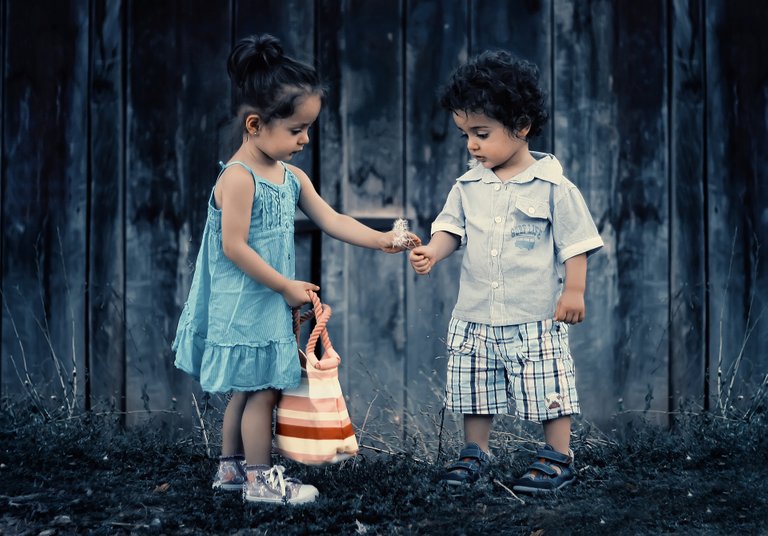
In my previous post we talked about the firstborn experience when a sibling arrives. I shared some memories of the first days with my baby-sister and the mini-battles we were throwing later. We came to the conclusion that our parents had different expectations for each of us. I was always the older consequently, I was held responsible for my actions while my sister was always too little to understand what she was doing.
Last time we also talked about the dethroned child phenomenon and I was a bit whiny about what a burden it was to be the older sibling. To tell you the truth, I exaggerated (just a tiny bit!).
Yees, OK, it wasn’t thaaat bad. It definitely had its cons, but it also had inevitable pros. Furthermore, I liked to be more responsible as it gave me some kind of higher status compared to my sister. I actually was permitted to play bossy from time to time. Of course, she resented it and ceased every opportunity to disobey. So, now and then, we were like two generals who played a game of tactics trying to win the sister-sister war.
But this is only a part of the big picture. Every time when one of us was outsmarted by the other and found herself taking full responsibility for a mischief done by both of us, the other one started a rescue operation. Sometimes it included surrendering and confessing her contribution to the mischief. On other occasions, negotiations were started with our parents so that the hostage (that is to say the accused sister) to be relieved.
It was definitely a game of war but even in a middle of a battle, there was always deep unconditional love. I remember how my heart broke every time my sister was sad, ill or scared. I somehow felt the need to protect her and take care of her. Yes, at the beginning when my mom showed her to me, I was disappointed that I couldn’t play with her (not only she couldn’t play, but she destroyed all my toys!), but soon enough I found another mission to engage with – I was going to guard her.

I can vividly recall the first night at our new home. Until then we shared a bedroom with our parents and this was the first night on our own. We could definitely smell in the air that all the bogies, ghosts and under-bed-hiding-monsters were preparing for a midnight fight. Each of us was lying in her bad when my sister asked me if I was asleep. I wasn’t. She said that she was scared. I wasn’t feeling very comfortable with all the darkness in the room either, but I said that everything was going to be alright. I left my bed and moved to hers. I took her tiny palm and started caressing it gently until my sweet little sister fell asleep. I was her big sister on duty and I wouldn’t let any monster to scare her. Not on my watch!
I am quite sure that you have similar memories with your siblings. But there is something more than nostalgia in these simple stories. They show that a siblings’ relationship includes a lot of mixed feelings and role exchanges. It sounds like a fairytale - the dethroned prince or princess turns into a warrior who guards his or her younger sibling. However, the younger siblings are rarely passive receivers in their relationship with the older ones. Sometimes they oppose the older, on other occasions, they cooperate with them. Siblings’ relationships depend on many factors. Maybe the most important of them, as I stated in the previous part are parental expectations toward the siblings.
Toman's Theory
Walter Toman was an Austrian psychoanalyst who observed family constellations and relations. He distinguished some interesting patterns in the relationships between the siblings depending on their birth order, gender, and parental expectations toward them.
In his book "Family Constellation. Its Effect on Personality and Social Behavior" Toman tried to explain this kind of family dynamics.
Let’s have a quick look at his work on how family constellations form personality.
Brother-Brother relationship

When there are two brothers in the family the older brother needs to get used to the presence of a younger brother and has to learn to share everything with him. In the beginning, this would be difficult for him, but later, he would even learn to assume responsibility and leadership of his brother. His parents would probably demand that he heeds little brother’s interests, protects him and gives him things, even if he gets nothing in return (except parental approval and encouragement, which is a desirable award for a child). Thus, he could become a responsible man who doesn’t mind to take care of others, make decisions and leads those who seem to need a big brother to navigate them.
It is not uncommon for the little one to consider his brother as an idol. It is not that surprising. From the very beginning of his life, the older brother has always been taller, faster, smarter, and stronger. The younger brother would probably urge to catch up with his brother, even to overtake him or at least to resist and oppose him when needed. This desire could stay with him even when he is in his adulthood.
So, we could assume that it is a complex relationship. On one hand, the older brother is idolized in his younger brother eyes. The younger one would look up at his brother and would admire him for his better (or perceived as better) abilities. On the other hand, he feels a constant urge to compete with the older one – he tries to make an excellent performance so that he could overtake his older sibling. He could turn into an ambitious young man who is never fully satisfied with his accomplishments because in his imagination there is always a “big brother” who does everything better than him.
Sister-Brother Relationship

According to Toman an older sister and a brother would arrange their relationship in a different way. On one hand, if there is a well-established age gap between them (3 years or more) she would probably be old enough to play a role similar to her mother’s role to her brother. Perhaps she would not only guard and protect her little brother, but she would take care of him, soothe him and dedicate much time to his upbringing. Furthermore, her parents would expect her to do this and she would be held responsible for him.
As I mentioned, Toman is a psychoanalyst, so he believes that there is a certain parental attitude toward a male child. That is why he suggests that in a case of a small age gap (1 or 2 years), the sister would feel threatened by the presence of the little baby-boy because their parent would treat him as if he is superior to her. According to Toman, if the age spacing is 4 or 5 years, it would be much easier for her to adapt to her parents’ different attitude towards the siblings in the family. Toman believes that in both case scenarios this would probably lead to a feeling of lesser importance later in adulthood. He also argues that an older sister would get along well with boys and later men, sensing their interests and sometimes subordinating her own. She would be able to give comfort and consolation and often when people are in trouble, they would come to her, and she would enjoy that.
Even if we ignore the psychoanalytic view (for further reading see Penis envy), parental favoritism could lead to a persistent siblings’ conflict, rivalry and tension anyway. Something which could continue decades later (Whiteborne, 2015).
On the other hand, Toman argues that the younger brother of a sister would learn to seek help, tenderness, and care from his older sister. Furthermore, their parents would probably insist on her to take care of him. Thus, he would project this attitude later in life to the other women he meets. He would probably know well how to please a woman and make her do what he needs her to.
Toman suggests that personalities form in a different way if the brother is older. He would observe the love and tenderness their parents are giving to his little sister and would probably adopt them in his own behavior. He would take care and protect his sister and would be rewarded for that with his parents’ approval. If there is a well-established age gap between them, he wouldn’t feel the urge to compete with his sister. He might continue to assume a role of leadership and responsibility to other women later in life. However, if the age gap is too small (only a year or two) he would feel threatened by the arrival of his sister. Perhaps he would feel abandoned and would experience the dethroned child phenomenon we discussed in my previous post.
On the other side, the younger sister of a brother will probably develop as a very feminine person. She is used to the protection and care of her older brother and has learned to accept his leadership. There is always someone who could help her with any physical effort and who would solve conflicts for her on the playground. Their parents will encourage this kind of behavior for both of them and soon the sister will turn into the little darling of the family. She would probably let men spoil her later in life.
Sister-Sister Relationship

The situation yet is different if there are two sisters in the family. The older sister of a sister would probably feel betrayed by her parents with the arrival of the baby girl. The smaller the age gap between them, the bigger her frustration would be. If she is four or five years older she would be more equipped to deal with the conflict, to overcome her feelings of jealousy, and to assume responsibility for the little one.
The younger sister would have to learn to obey her sister in the beginning, but as she grows up she would probably try to oppose her. Similar to the brother-brother relationship, at first her older sister, who does everything better than her, will probably be her idol, but later she would try to compete with her and accomplish more than her sister ever did. As it became clear with the previous examples, there are different parental expectation toward the siblings. On one hand, the older sister is expected to identify with the parents, to follow their instructions, and to renounce her wishes in favor of the younger one. On the other hand, the parents of two sisters seem to be more tolerant of their younger daughter even when she becomes an adult. According to Toman’s interpretation, it looks like they have the unconscious feeling that their younger daughter is permitted to do whatever she likes. Thus they can even encourage her to become impulsive, ambitious, and obstinate.
We should keep in mind that Toman is a psychoanalyst and his observations are analyzed through a psychoanalytical perspective. His book is built on the case-studies of his therapeutic practice and his observations have not been verified by psycho-social experiments yet. Still, there is a growing body of research which examines the matters of the family constellation and how it contributes to personality but still, there are many unanswered questions. Thus, Toman’s work is an intriguing glimpse into the events and relations in a family.
However, we should be well aware of the fact that each family has its unique relation system. Although sometimes it is possible to observe a certain pattern among families, it would be irrational to say that they apply to all families. Even though, the idea of the family constellation and its impact on personality is quite fascinating.
Thank you for spending time to read this article. I hope you enjoyed it. I am curious, do you find Toman’s suggestions to be true for you or your family members?
Created by @insight-out, Valeria Sim.
All rights reserved.
References:
Toman Walter (1999). Family Constellation and Its Effects on Personality and Social Behavior Fourth Edition, Springer Publishing Company
https://en.wikipedia.org/wiki/Birth_order
https://www.psychologytoday.com/us/blog/fulfillment-any-age/201501/why-you-and-your-siblings-may-still-be-rivals
https://en.wikipedia.org/wiki/Penis_envy
https://de.wikipedia.org/wiki/Walter_Toman
Images: (Under CC0 Creative Commons):
https://pixabay.com/en/game-toys-dogs-children-fun-2883106/
https://pixabay.com/en/monster-stuffed-animal-funny-plush-2687345/
https://pixabay.com/en/brothers-siblings-boy-2982560/
https://pixabay.com/en/siblings-brother-sister-children-817369/
https://pixabay.com/en/girls-children-tulips-netherlands-739071/
Congratulations! This excellent post was chosen by the new curation initiative of the @postpromoter content promotion service to receive a free upvote!
This post exemplifies the type of great content that we at @postpromoter enjoy reading and would love to see more of on the Steem platform. Keep up the good work!
Thank you, guys!
Indeed, it is fascinating to read about the sibling constellations and to derive some patterns for oneself. Thanks for this overview, I recognized myself a little bit :)
According to this theory I am a lucky child, because I am the youngest born and the age difference to my siblings and myself is very big. The largest interval is 12, the smallest 6 years. I have four brothers and a sister.
HeHe. At least that's what I tried and today I'm with a man who is very caring for me. In my first steady relationship, I was with a man who was himself the youngest child of two older sisters. That didn't really fit.
Family dynamics consist of a networked system of connections, feedback, outside influences and other relatives such as grandparents and other people, as well as events that play a role in the life of the family. It is a regulating system based on all internal and external influences.
It is also said that generational influences such as war go into the seventh link and occur or are processed there in certain forms. If you then add all the other systems, then you will sometimes be awed by the complexity of human coexistence.
Toman's work is nonetheless significant and another important step in the psychoanalytic approach to families. I did not know him yet and I am happy to have received a new name from you.
Yes, it is far much more complicated than we even imagine. Too many factors play a role.
It is funny that you say that because later in his book Toman examines the marriage and family outcomes depending on the birth order of the partners/ parents.
I wasn't familiar with him, too. I found his work by accident and he really got my attention. It turns out that he is an author of poems, novels, and prose, in which he talks about social delusions (according to wiki).
With this publication the question I asked in the second part has been answered. This is really interesting. With the analysis that Toman does, it is clear to me that the most stable and least conflictive relationship would be the big brother and a younger sister with a difference over 3 years.
An age gap of 3 or more years is something that contributes a lot to better siblings' relationship (even more than gender). Some research shows that siblings of the same sex could form a stronger life long alliance/friendship. So, as often with the social science, there is no clear answer. However, one factor is indisputable. Good parenting always contributes to good siblings' relationships.
Thanks for reading and commenting, @martinmcfly!
There are also cases where there is an intense hatred between siblings, whether sister-sister or sister-bother. Is that also caused by parenting?
Hey there, @njokueruchi! You are right - there could be hatred and rivalry among siblings in a family.
As always in social science it is extremely difficult to isolate the different factors that play a role in one's behavior and to observe them independently. That is why we cannot say that only poor parenting is causing siblings hatred. External events, extended family (e.g. grandparents, uncles, and aunts, etc), biological factors (e.g. inherited personal traits) could also influence the emergence of siblings' rivalry.
Even though, there is some research which shows that parental favoritism (meaning parent's preference of one of the siblings over the others) could influence siblings' relationship and cause rivalry and hatred.
Thanks for readining and commenting! I appreciate it!
very very well @insight-out, I vividly remember your previous post
I saw this in many families from my high school down to college. Is there a reason or science to this?
I see a serious point in Toman's conclusions. Especially in the sister-brother relationship, because I have seen that happen over and over again.
Thank you very much for reading and commenting @akiripromise!
It concerns childhood experience - an age gap of one, two or more years is a huge one when you are a child. Thus, the older one is always ahead of the younger one. As psychoanalysts (and many other psychological perspectives) believe, early childhood experience forms who we are. Even if brothers are grown-ups already and these physical and cognitive differences don't exist anymore, the idea of the stronger brother could remain as part of one's view toward self and others.
I was surprised to realize that Toman's description of sister-sister relationships applies quite accurately to my sister and me :) That is why I decided to present his work :)
You got a 13.56% upvote from @postpromoter courtesy of @postcurator!
Want to promote your posts too? Check out the Steem Bot Tracker website for more info. If you would like to support the development of @postpromoter and the bot tracker please vote for @yabapmatt for witness!
You have recieved a free upvote from minnowpond, Send 0.1 -> 10 SBD with your post url as the memo to recieve an upvote from up to 100 accounts!
Thank you!
This post has received a 5.3 % upvote from @boomerang.
It is really fascinating to read about these topics, even to interpret and know certain unknown topics, congratulations, excellent post. I invite you to take a look at my last post and know a reality that many face and the majority is unaware of.
Thanks, @mgaby. I am glad you found it intriguing. I will stop by your blog these days to read a bit about Venezuela :)
Congratulations @insight-out! You have completed the following achievement on Steemit and have been rewarded with new badge(s) :
Click on the badge to view your Board of Honor.
If you no longer want to receive notifications, reply to this comment with the word
STOP